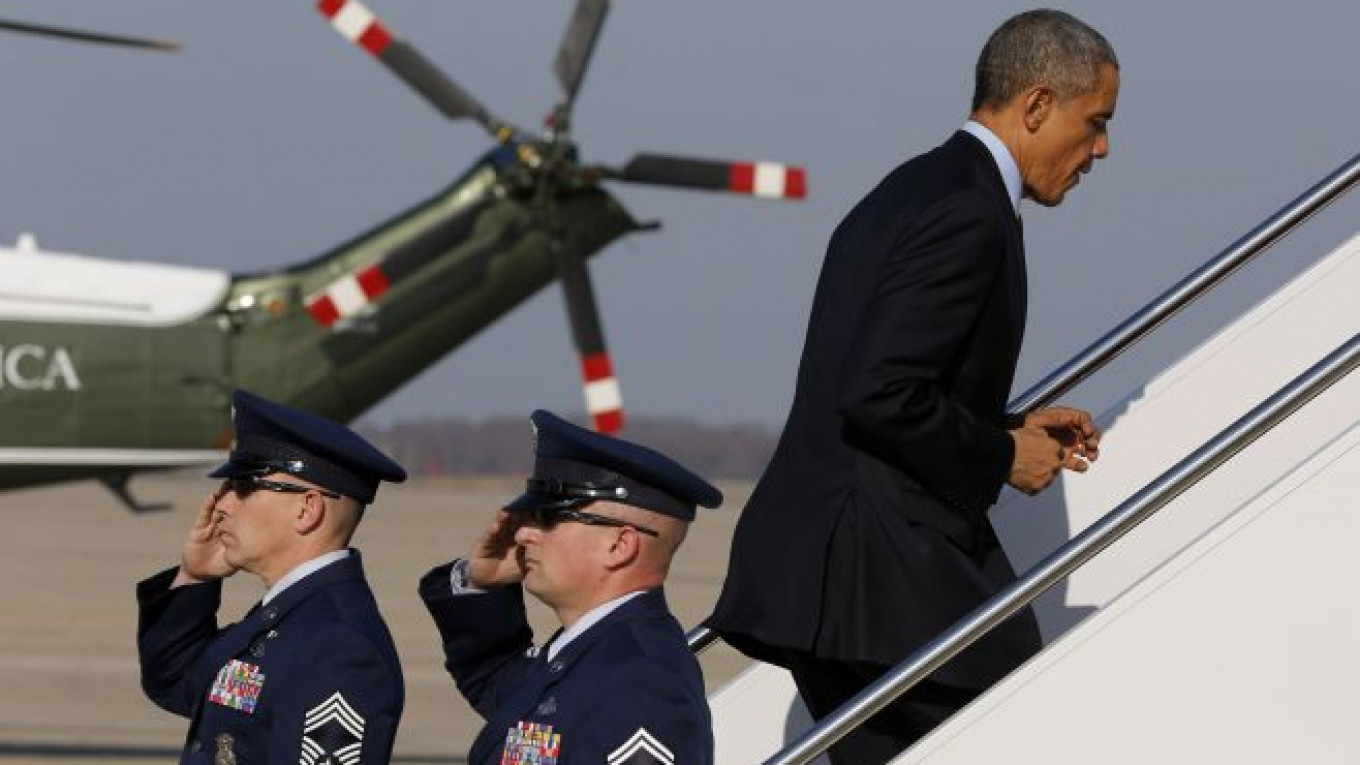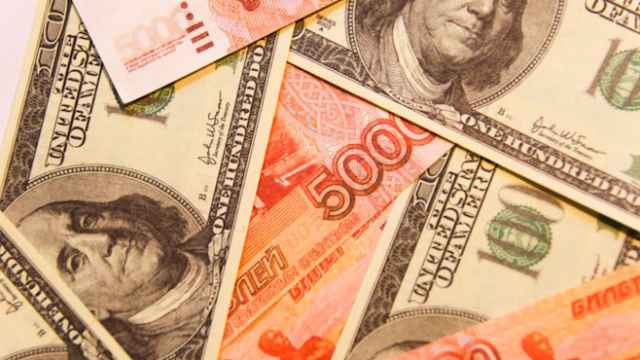The White House said Monday that President Barack Obama had not yet decided how to respond to a bill authorizing new sanctions against Russia over its activities in Ukraine, although some lawmakers said they expected he would sign the measure into law.
"This is something that has been the source of some discussions at the White House over the last several days," spokesman Josh Earnest told reporters aboard Air Force One.
Administration officials said they are deeply concerned about Russia's actions in Ukraine, but they want any sanctions regime to minimize the impact on U.S. business, international oil markets and the global economy.
Obama had said previously he opposed further sanctions on Russia unless Europe is on board. The administration had also held off supporting lethal military aid for the Kiev government, which is also authorized in the bill.
Congress passed the "Ukraine Freedom Support Act" on Saturday, seeking to put more pressure on President Vladimir Putin by authorizing new sanctions on weapons companies and investors in its high-tech oil projects, and to boost the Kiev government with military aid.
At the White House's request, the measure authorizes sanctions but does not make them mandatory, giving Obama leeway over what would actually be in force.
The measure's Senate sponsors, Republican Bob Corker and Democrat Robert Menendez, said they hoped Obama would sign the bill.
"It would be a pretty big breach of relations because we worked with the administration so much," Corker said.
John Boehner, the Republican speaker of the House, issued a statement on Monday urging Obama to sign the bill.
The ruble plunged around 10 percent against the dollar on Monday, its sharpest fall since 1998, and Russian assets sold off across markets amid concern about possible new sanctions.
The bill authorizes Obama to apply sanctions on state owned arms exporter Rosoboronexport and other defense companies that Congress says contribute to instability in Ukraine, Georgia and Syria.
Penalties go beyond U.S. and EU sanctions imposed in September on the world's largest oil companies such as Exxon Mobil Corp and BP Plc.
The legislation would also allow $350 million in lethal and non-lethal military assistance to Ukraine from 2015 to 2017 and other aid for energy to the country, which has been threatened by cutoffs in natural gas supplies from Russia.
A Message from The Moscow Times:
Dear readers,
We are facing unprecedented challenges. Russia's Prosecutor General's Office has designated The Moscow Times as an "undesirable" organization, criminalizing our work and putting our staff at risk of prosecution. This follows our earlier unjust labeling as a "foreign agent."
These actions are direct attempts to silence independent journalism in Russia. The authorities claim our work "discredits the decisions of the Russian leadership." We see things differently: we strive to provide accurate, unbiased reporting on Russia.
We, the journalists of The Moscow Times, refuse to be silenced. But to continue our work, we need your help.
Your support, no matter how small, makes a world of difference. If you can, please support us monthly starting from just $2. It's quick to set up, and every contribution makes a significant impact.
By supporting The Moscow Times, you're defending open, independent journalism in the face of repression. Thank you for standing with us.
Remind me later.






